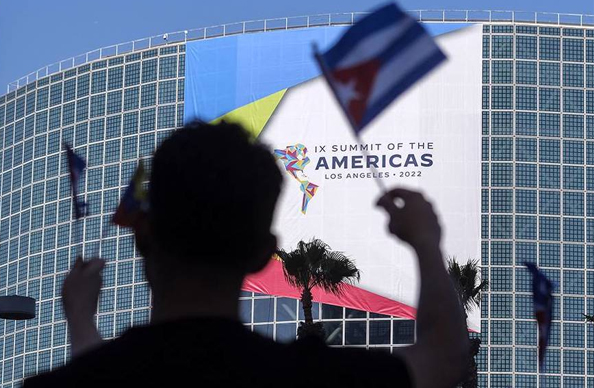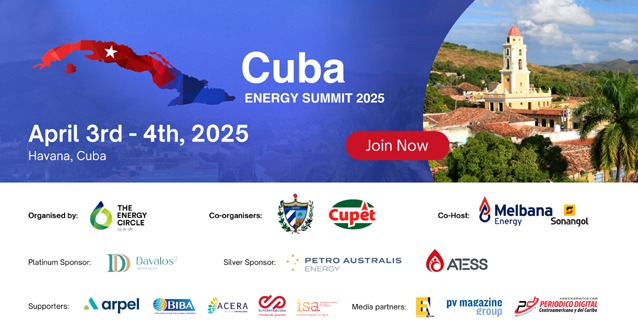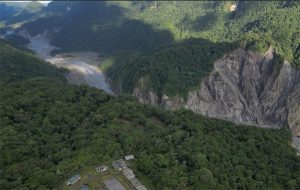
(Ringo Chiua/AFP)
By Ana Palacios
MADRID – Is the West losing Latin America? During the Cold War, this question was feverishly discussed in Washington, DC, and beyond. Now, the return of great-power competition and the potential revival of spheres of influence—together with the recent wave of left-wing electoral victories in the region—are giving it renewed salience.
For the West, the looming specter of hot conflict with authoritarian regimes, from Russia to China, has again highlighted Latin America’s importance as a partner. At the same time, however, the United States and its allies are preoccupied by the war in Ukraine, including, not least, its implications for energy markets and economic prosperity.
Political upheaval in Latin America will make effective engagement all the more difficult. Though the region has long been plagued by corruption, inequality, and crises of confidence, it made significant progress in recent years, with poverty reduction—often achieved through commodity-export-funded social-policy experiments—buttressing political stability.
But the pandemic disrupted this process and ushered in a period of economic malaise and political instability. Latin America’s traditional political-party systems have now collapsed, and the region appears to be firmly gripped by populism and polarization.
Five of the six most populous South American countries are now led by leftist governments, albeit cut from a very different cloth than the Cuban or Venezuelan regimes. Peru’s leader, Pedro Castillo, is a self-professed Marxist. In Chile—once the bastion of free-market policies in the region—the left-wing activist Gabriel Boric is in charge. Colombia, long considered a bellwether for Latin American politics, recently elected the former guerilla Gustavo Petro as its president. And Brazil, the region’s most populous country and its largest economy, could well join their ranks when it holds its next presidential election in October.
In the meantime, evidence of the West’s declining influence in Latin America continues to mount. At the United Nations General Assembly last February, five Latin American countries declined to condemn Russia’s invasion of Ukraine (Bolivia, Cuba, El Salvador, and Nicaragua abstained, and Venezuela refused to participate in the voting). And many Latin American governments have refused to join the West in imposing sanctions on Russia. This has fueled speculation that the region is set to reprise a Cold War-style posture of non-alignment.
Moreover, several Latin American leaders—including Mexican President Andrés Manuel López Obrador and Bolivian President Luis Arce—vowed to boycott last month’s Summit of the Americas if their Cuban, Venezuelan, and Nicaraguan counterparts were excluded. A failed summit—and a major embarrassment for U.S. President Joe Biden’s administration—was a distinct possibility.
The meeting was ultimately salvaged. But the outcome—a pro forma declaration on migration and a somewhat toothless Americas Partnership for Economic Prosperity—was hardly impressive. Moreover, Obrador followed through on his threat not to show up, and Bolivia, El Salvador, Guatemala, and Honduras sent ministers, rather than heads of state or government. It might not have been a debacle, but nor will it leave a lasting mark on hemispheric affairs.
This reflects Western failures as much as Latin American political developments. Though Biden has not maintained the hostility toward Latin America of his predecessor, Donald Trump, his administration has failed to deliver an effective policy of regional engagement. Latin American countries are frustrated with Biden’s apparent indifference to them, and his willingness to let domestic considerations—including the looming midterm elections and the politics of states with large Hispanic constituencies, such as Florida—drive policy.
Europe has not done any better. Since agreeing “in principle” to a free-trade deal with the Mercosur countries—a deal that has yet to be ratified—the European Union’s approach to Latin America has been lackluster. It failed to pursue effective pandemic diplomacy, and now its attention is consumed by the war in Ukraine, including the imperatives of bolstering its security and weaning itself off Russian energy.
Meanwhile, China continues to expand its Latin American footprint. From 2002 to 2021, China’s total trade with the region skyrocketed, from $18 billion to nearly $449 billion. At this rate, it will exceed $700 billion by 2035. These gains have been propelled partly by free-trade agreements with Chile, Costa Rica, and Peru. China is also working toward a deal with Ecuador, and has engaged 21 Latin American countries in its Belt and Road Initiative.
China has achieved this success by offering all the perks of trade and investment, with none of the conditions. As one commentator put it, America has a Vatican-style approach to Latin America, with lots of rules and conditions laid out up front, whereas China offers the easy welcome of Mormon missionaries. This does not mean that China makes no demands, but they do not come until later, often in the form of hidden clauses. By the time they come to light, China has a solid foothold in the region—one that includes a growing military presence.
The West cannot afford to lose Latin America today any more than it could during the Cold War. A key producer of fuel and food, the region can fill important supply-chain gaps. More fundamentally, revitalizing the rules-based international order will require the West to achieve a kind of critical mass with partners and allies—including Latin America.
That is why the West must work urgently to rebuild its lost credibility in Latin America. This will require time, commitment, and diplomatic heft. As a first step, the U.S. and Europe should seek to build cooperation in areas of mutual interest, such as climate change, public health, and migration. Spain’s upcoming EU Council presidency provides an important opportunity to kick-start progress. In any case, steps must be taken within the coming months.
Reviving relations with Latin America will not be easy in the polarized political climate prevailing in much of the West. But when the stakes are as high as they are today, we cannot afford to keep our heads buried in the sand.
_______________________________________________________________
Ana Palacio, a former minister of foreign affairs of Spain and former senior vice president and general counsel of the World Bank Group, is a visiting lecturer at Georgetown University, Silvia Merler, an adjunct lecturer at the Johns Hopkins University School of Advanced International Studies, is Head of ESG and Policy Research at Algebris Investments, Francesco Nicoli is Professor of Political Economy at Ghent University and an affiliate fellow at the University of Amsterdam,Simone Tagliapietra is a senior fellow at Bruegel and an adjunct professor at Università Cattolica del Sacro Cuore. Energiesnet.com does not necessarily share these views.
Editor’s Note: This article was originally published by Project Syndicate on February 28, 2022. All comments posted and published on EnergiesNet.com, do not reflect either for or against the opinion expressed in the comment as an endorsement of EnergiesNet.com or Petroleumworld.
Use Notice: This site contains copyrighted material the use of which has not always been specifically authorized by the copyright owner. We are making such material available in our efforts to advance understanding of issues of environmental and humanitarian significance. We believe this constitutes a ‘fair use’ of any such copyrighted material as provided for in section 107 of the US Copyright Law. In accordance with Title 17 U.S.C. Section 107. For more information go to: http://www.law.cornell.edu/uscode/17/107.shtml.
EnergiesNet.com 08 01 2022












